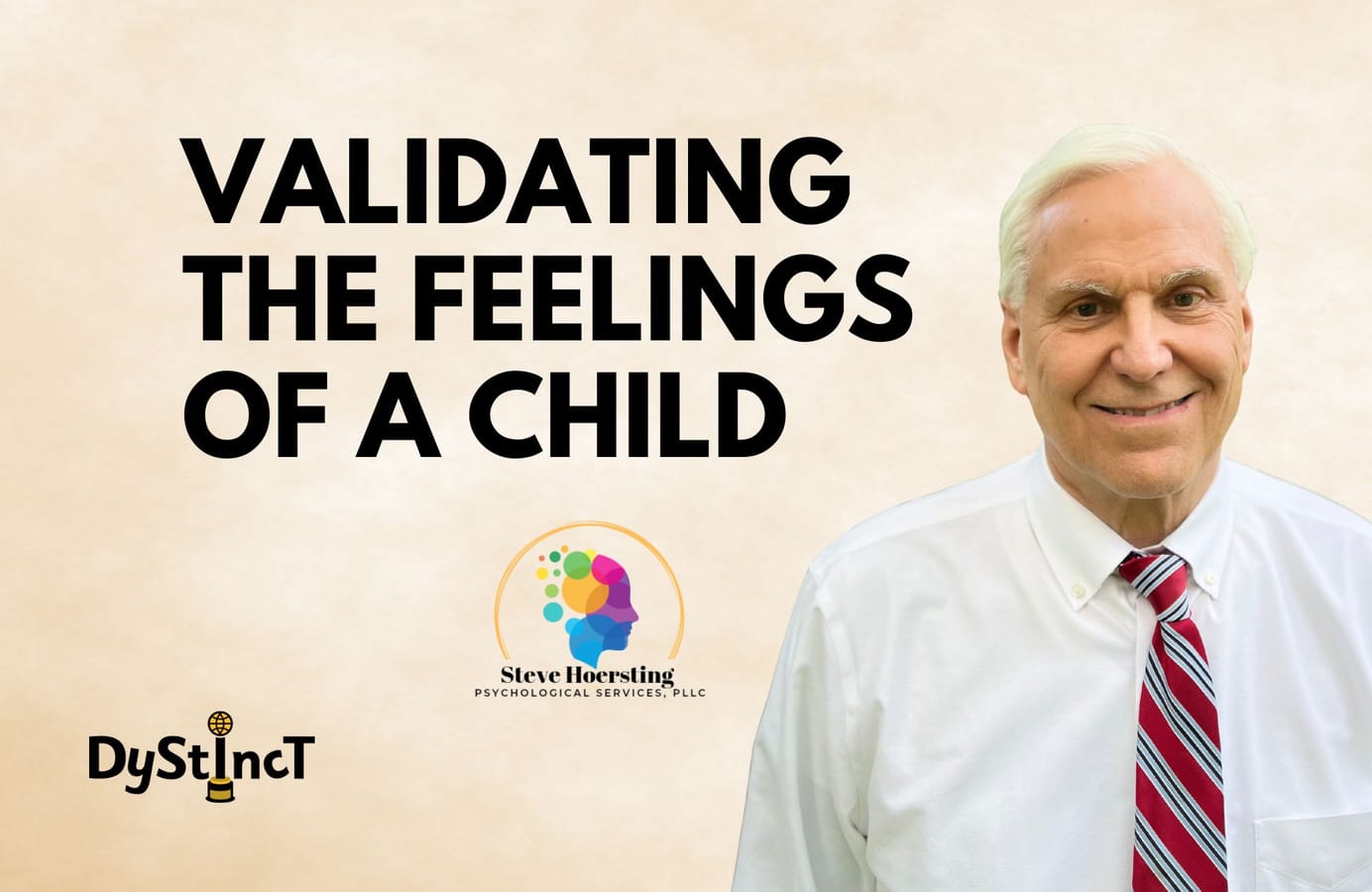
Issue 28: Validating the Feelings of a Child | Steve Hoersting
Dr Steve Hoersting highlights the importance of validating a child's feelings, its significant psychological benefits, and offers practical strategies to build emotional awareness, resilience, and healthy relationships.

Why is the validation of the feelings of a child so important? There are many reasons for this. One of these reasons is that it will increase the child’s Emotional Awareness, which is crucial to a child’s development. Emotional Awareness is the ability for the child to recognize, understand, and label their own feelings and the feelings of others. Emotional Awareness is a foundational skill for emotional intelligence, also known as EQ. Emotional intelligence (EQ) enables the child to identify their wider feelings and better manage emotions, as well as express their needs. It also helps them to empathize with others and navigate social situations more effectively.
Validating a child’s feelings forms the foundation for psychological growth and for healthy relationships in the future.
Some of the key components of Emotional Awareness include emotional literacy which is the ability to use specific words to name emotions. Emotional Awareness is the first step in managing and regulating emotions effectively. This helps a child become more socially adaptable, empathetic, better at forming relationships, and have better overall mental health throughout childhood and into adolescence. Emotional Awareness also includes empathy, which is the ability to recognize and understand the emotional experience of others. Emotional Awareness also takes in a concept called understanding causes. Understanding causes is connecting feelings to specific events or things that cause them.
Validating a child’s feelings forms the foundation for psychological growth and for healthy relationships in the future. Supporting emotional regulation and resilience encourages a child to begin to think, which in turn leads to independent problem-solving. Subsequently, this leads to asking for ideas.
When a child is invalidated by minimizing their feelings, they may feel as though their feelings are wrong.
It is important to remember that validation does not necessarily mean agreement. Validation of emotions encourages Emotional Awareness, resilience, and Emotional Intelligence (EQ) in a child. EQ is the ability to understand, manage, and express emotions. It also includes the ability to recognize and respond to the emotions of others. Developing EQ is a major element in psychotherapy with a child. Many do not get validation of their feelings from peers and, sometimes, even caregivers. EQ involves self-awareness, self-regulation, motivation, empathy, and social skills development. Developing EQ in a child also builds stronger relationships, helps manage stress, and navigate social situations more effectively. A child with a high EQ also typically has improved mental health and better academic success. It has been shown to reduce the risk of substance abuse, enhance problem-solving skills, and increase creativity.
What does it mean to validate a child’s feelings? Validation involves recognizing and accepting the child’s emotions without judgment. The critical concept is “without judgment.” It includes refraining from offering immediate ideas for solving the problem they are expressing. Acknowledging a child’s sadness communicates understanding, while the dismissal of it can increase feelings of isolation. Providing invalidating responses can lead to feelings of internal arguing. It also may promote arguing with the caretaker rather than increasing collaboration. This is because, for the child, it often feels as though the person interacting with the child is disagreeing with them. What are the additional consequences of invalidating a child’s feelings? Invalidation can lead to emotional suppression, low self-esteem, difficulty with trust in others, and long-term behavioral consequences. When a child is invalidated by minimizing their feelings, they may feel as though their feelings are wrong. This can be internalized and also be externalized with the adult with whom they are expressing their feelings.
Benefits of Validation
Benefits of Validation
There are significant psychological benefits of validation. These benefits include increased self-esteem, reduced anxiety, and reduced behavioral issues. Strengthening the validation of a child fosters trust and open communication between the child and their caregivers. Children who are heard are more likely to share openly and form secure attachments. Many children come to my office complaining that they are not heard. They say that they “get lectured” when they talk about their feelings or things that have happened. The child tells me that they are frequently immediately given ideas to solve the problem. The child expresses frustration because they are interrupted when explaining their feelings. What the child wants is to be heard.
Children who are heard are more likely to share openly and form secure attachments.
This post is for paying subscribers only
SubscribeAlready have an account? Log in


